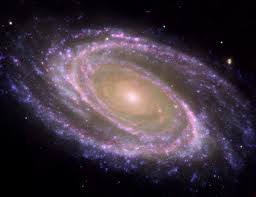A few weeks ago, there was big news about new scientific evidence involving the Big Bang theory.
USA Today summed up the findings this way, “In an achievement hailed as astounding, scientists have detected ripples made in the fabric of the universe just after the Big Bang, providing definitive evidence that that the universe underwent a fast and incomprehensibly massive growth spurt in its earliest infancy.” 
I don’t know where you stand on the whole beginning of the universe thing. Maybe it all began with one random, colossal bang of energy, or maybe God created it in six, consecutive 24-hour periods. My purpose isn’t to argue science or theology.
No matter what you believe, it’s hard to deny that our world is full of patterns. Our universe has an order, a predictability to it. As I was reading the news story, it made me think about the similarities between the beginning of the universe and the beginning of our lives.
I’m no scientist, but from what I understand, the Big Bang theory says the universe began with a huge explosion of random particles that suddenly turned into our universe – to put it very, very simply.
The point is that the universe didn’t gradually come into being – whether you believe the Biblical creation story or the Big Bang theory. Basically, there was nothing, and then a big event suddenly turned it into something: our universe.
That pattern should be familiar to us. We see it in the beginning of every human life. First, there’s nothing – just some random cells from a man and a woman. Then, as the matter meets, there’s suddenly something: a new human life.
It may seem like a simple observation, but the more I look at the world and explore the issues of life and death, the more I see how nature reinforces the principle that human life is valuable from the moment of conception.
Human life doesn’t gradually become valuable, just as the universe didn’t gradually become our universe.
We are valuable from our very beginning.
